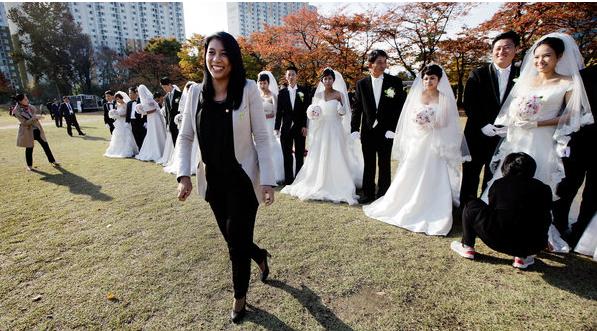
인구변화가 한국인이 되는 것이 무엇을 의미하는 지를 재정의하다
민족신문 김기백 대표의 제보에 따르면, 세계적 언론매체인 미국의 NYT에서 서울특파원 최상훈기자 명의로, 한국에서 외국인으로서는 최초로 한국 국희의원이 된 필리핀 출신의 이자스민 의원에 대한 논란이 일어나고 있는 것을 계기로 하여 , 한국정부 주도하에 급속도로 진행-전파되고 있는 이른바 '다문화 정책'에 대한 각계각층의 한국인들의 반응과 의견을 조명하는 기사를 지난달 29일자로 NYT 인터넷판으로 보도하였다.
김대표에 따르면 지난 10월26일에 NYT서울 특파원 최상훈기자가 한국정부의 다문화 확산 정책과 이자스민이 과연 한국 국회의원으로써 자격이 있는가 에 대한 논란에 대하여 한국의 민족주의자로써의 견해를 청취하고 싶다고 민족신문 김 대표에게 전화인터뷰를 요청한 내용이 기사의 말미-결론 대목에 5줄가량 요약 보도 되고 있다.
* 아래는 뉴욕타임즈 인터넷 판에 보도된 전문을 김기백 대표가 영어에 익숙한 가까운 친척에게 부탁해서 한글로 번역 한것을 영문보도문과 함께 빅뉴스로 보내온 것이다.
김대표에 따르면 꽤 길고 복잡한 영문보도를 번역한 사람은 김대표의 가까운 질녀(조카딸) 로 아직 20대인 관계로 혹여 번역이 다소 미흡한 대목이 있더라도 독자제위의 양해를 구한다고 하였다.
*한가지 특기 할 일은 지금은 NYT 서울특파원으로 재직하고 있는 최상훈 기자는 AP통신기자로 활약할때인 2000년에 한국국적 기자로서는 최초로 퓰리처 상을 수상한 경력을 보유하고 있다는 것이다.
ㅣㅣㅣㅣㅣㅣㅣㅣㅣ
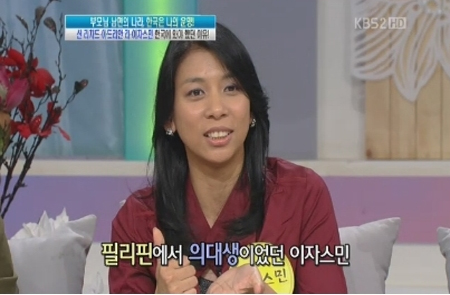
Demographic Shifts Redefine What It Means to Be Korean
인구변화가 한국인이 되는 것이 무엇을 의미하는 지를 재정의하다
SEOUL, South Korea — Jasmine Lee realizes just how Korean she’s become when she breaks out in the language, forgetting that her Filipino mother on the other end of the phone can’t understand her.
남한의 서울 – 자스민 리는 전화를 통해 필리핀 어머니와 대화할 때 그녀의 필리핀 어머니가 이해할 수 없을 것이라는 사실을 잊은 채 한국어로 말을 하게 될 때 그녀가 얼마나 한국인화 되었는지를 깨닫곤 한다.
But she is reminded of the limits of assimilation when Koreans, impressed by her fluency, comment: “You sound more Korean than Koreans do.”
그러나 그녀는 한국인들이 그녀의 유창한 한국어 실력에 감명을 받아 “한국인보다 더 한국어를 잘 구사하는 군요”라는 말을 할 때마다 한국사회에 동화되는 것에 대한 한계를 느끼게 된다.
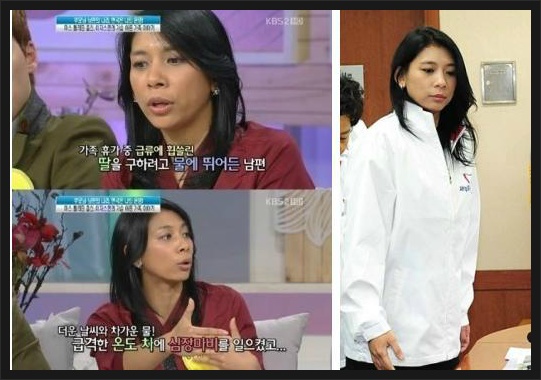
South Korea is facing the prospect of becoming a multiethnic society.
남한은 다민족 사회가 될 전망이다.
One of every 10 marriages in the country now involves a foreign spouse.
이 나라의 매 10 쌍의 결혼 중 한 쌍이 이제는 국제결혼을 수반하고 있다.
Ms. Lee, 35, who was born Jasmine Bacurnay in the Philippines, made history in April when she became the first naturalized citizen — and the first non-ethnic Korean — to win a seat in South Korea’s National Assembly.
필리핀에서 태어난 35살 Jasmine Bacurnay씨는 귀화시민으로서 지난 4월 남한의 국가 의회에서 첫 비민족 한국의원으로 당선되어 새로운 역사를 만들었다.
Her election reflected one of the most significant demographic shifts in the country’s modern history, a change Ms. Lee says “Koreans understand with their brain, but have yet to embrace with their heart.”
그녀의 당선은 그녀가 말한 것처럼 “한국인이 머리로는 이해하지만 아직 마음으로 포용할 준비가 되지 않은” 변화, 즉 한국의 근대 역사에서 가장 중요한 인구학적 변화 중 하나를 반영한다.
Only a decade ago, school textbooks still urged South Koreans to take pride in being of “one blood” and ethnically homogeneous.
겨우 십년쯤 전에도 학교 교과서에서는 여전히 남한인이 “하나의 혈통”을 가지며 단일 민족인 것에 대해 자부심을 가지라고 설득하려 했다.
Now, the country is facing the prospect of becoming a multiethnic society.
이제, 이 나라는 다민족사회가 될 전망이다.
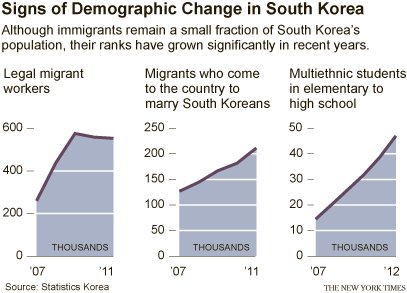
While the foreign-born population is still small compared with countries with a tradition of immigration, it’s enough to challenge how South Koreans see themselves.
남한이 이민의 전통을 지닌 다른 국가들에 비해 외국태생 인구가 여전히 적지만, 남한인들이 그들 스스로를 보는 시각을 충분히 시험해볼만한 때가 된 것이다.
“It’s time to redefine a Korean,” said Kim Yi-seon, chief researcher on multiculturalism at the government-financed Korean Women’s Development Institute.
정부재원으로 운영되는 한국여성정책연구원의 가족․다문화정책 센터장 김이선씨는 “한국인을 재정의할 시기가 왔다”고 말한다.
“Traditionally, a Korean meant someone born to Korean parents in Korea, who speaks Korean and has Korean looks and nationality. People don’t think someone is a Korean just because he has a Korean citizenship.”
“전통적으로, 한국인은 한국에서 한국인 부모에게서 태어나, 한국어를 구사하고 한국인의 외모를 가지며 한국국적을 가진 자를 의미했다. 사람들은 단지 누군가가 한국인 시민권을 가지고 있다고 해서 그를 한국인이라 생각하지 않는다.”
Among the factors driving this development is the influx of women from Southeast Asia who have come to marry rural South Korean men who have difficulty attracting Korean women willing to embrace country life.
오늘날 이런 현상을 끌고 온 요인에는 시골생활을 감내할 한국 여성을 찾는데 어려움이 있는 시골 남한 남성과 결혼하기 위해 남동 아시아로부터 온 여성들의 유입이 크다.

The number of marriage migrants grew to 211,000 last year from 127,000 in 2007, most of them women from Vietnam and other poorer Asian countries drawn to a better life in South Korea.
결혼 이주자의 수는 2007년 127,000명에서 지난 해 211,000명으로 크게 늘어났는데, 그들 중 대다수는 베트남이나 다른 가난한 아시아 국가들에서 남한의 윤택한 삶을 찾아 온 여성들이다.
In industrial towns, young men from Bangladesh and Pakistan toil at jobs shunned by Koreans as too dirty and dangerous, providing cheap labor that South Korea’s export-driven economy needs to compete with China.
공업중심도시들에서는, 방글라데쉬와 파키스탄에서부터 온 젊은 남자들이 한국인들이 너무 더럽고 위험해서 외면한 일자리에서, 남한의 수출 집약적 경제에서 중국과의 경쟁에서 살아남기 위해 요구되는 값싼 노동력을 제공하며 고생스럽게 일한다.
The number of such workers almost doubled to 553,000 last year from 260,000 in 2007 — not counting those who overstay their visas and work illegally.
그런 노동자들의 수는 비자기간보다 오래 머무르며 불법으로 노동하는 자들의 수를 제외하고도 2007년 260,000명에서 작년 553,000명으로 거의 두 배가 되었다.
One of every 10 marriages in South Korea now involves a foreign spouse.
남한의 10쌍의 결혼 중 한 쌍은 이제 국제결혼을 수반한다.
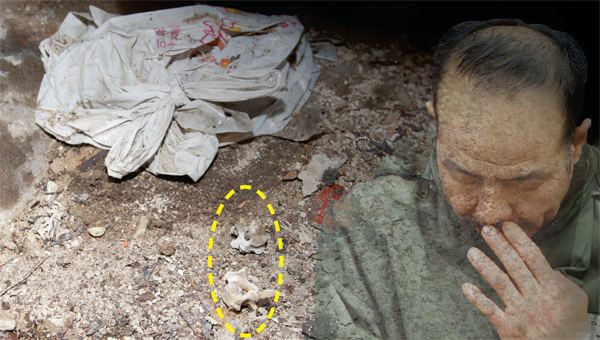
Although overall numbers of schoolchildren in South Korea have been declining — to 6.7 million this year from 7.7 million in 2007 — as a result of one of the world’s lowest birth rates, the number of multiethnic students has been climbing by 6,000 a year in the same period.
세계에서 가장 낮은 출산율을 가진 나라 중 한 나라가 된 결과, 비록 남한의 전체 초등학생의 수는 줄어들어 왔지만 –2007년 770만 명에서 올해 670만 명으로-, 다민족 학생의 숫자는 같은 기간 동안 일 년에 6천명씩 늘어나고 있다.
“A multicultural society is not just coming; it’s already here,” Ms. Lee, a member of the governing Saenuri Party, said in an interview at her office in the National Assembly.
“다민족 사회는 앞으로 다가 올 것이 아니다. 그것은 이미 왔다.” 여당인 새누리당 당원인 이씨가 국회 내 그녀의 사무실에서 이루어진 인터뷰에서 한 말이다.
Still, her election exposed how far South Korea remains from that ideal, suggesting a rough road ahead as it grapples with the demographic changes.
여전히, 그녀의 당선은 한국인들이 그 이상향으로부터 얼마나 동떨어져있으며 인구학적 변화를 위하여 나아갈 때 놓인 험난한 길을 제시한다.
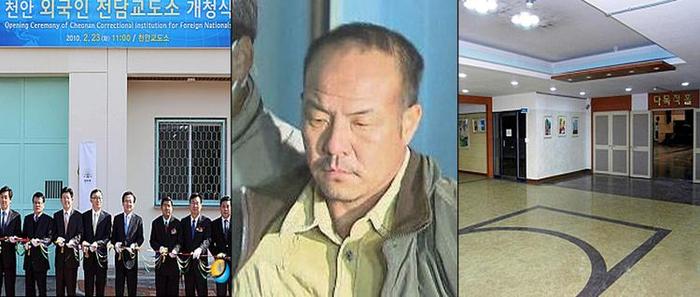
After Ms. Lee’s election, anti-immigration activists warned that “poisonous weeds” from abroad were “corrupting the Korean bloodline” and “exterminating the Korean nation” and urged political parties to “purify” themselves by expelling Ms. Lee from the National Assembly.
그녀의 당선 이후 반이민 운동가들은 외국에서 온 “유독한 잡초”가 “한국 혈통을 부패시키고 있으며”, “한국민족을 멸종시키고 있다”고 경고했으며 정당들에게 국회에서 이씨를 퇴출함으로써 스스로를 “정화하도록” 촉구했다.
Prime Minister Kim Hwang-sik has condemned such xenophobic outbursts as “pathological,” and he urged South Koreans to take the transition to a multicultural society “not as a choice, but as an imperative.”
김황식 총리는 그러한 외국인 혐오적인 분출을 “병적인 것”으로 규탄해왔으며 남한인들이 “선택이 아닌 긴요한 문제”로 인식하며 다문화 사회로 이행하도록 촉구했다.
The role of ethnicity in South Koreans’ self-image explains why they take such pride in the success of ethnic Koreans abroad, like the new president of the World Bank, the Korean-American Jim Yong Kim.
남한인들의 자아상에서 민족성의 역할이 얼마나 큰 영향을 미치는지는 세계은행의 새로운 총재인 한국계 미국인 김용처럼 해외에서 성공한 교포들에 대해 같은 민족으로서 자부심을 가지는 것을 통해 알 수 있다.
It also explains why they considered it a national shame that a Korean-born American resident, Seung-Hui Cho, 23, killed 32 in a shooting rampage at Virginia Tech in 2007 before killing himself, even though he had emigrated with his family when he was 8.
그것은 또한 2007년 한국태생 미국 거주민이었던 23살의 조승희가 자살하기 전에 Virginia Tech에서 총기를 난사하여 32명을 죽인 것에 대해 왜 한국인들이 그가 8살 때 그의 가족과 함께 이민을 떠났음에도 불구하고 이를 국가적인 수치로 여기는지 설명해 준다.

Given this cultural backdrop, Korean policy makers face a difficult task integrating multiethnic families while avoiding the social and economic turmoil often blamed on immigrants elsewhere.
이런 문화적 배경을 고려해 볼 때 한국 정책 입안자들은 다민족 가족을 융화시키는 동시에 종종 이민자들의 탓으로 돌려지는 사회적, 경제적 혼동은 피해야하는 어려운 과제에 직면해 있다.
“They bring religious and ethnic strife to our country, where we had none before,” said Kim Ky-baek, publisher of the nationalist Web site Minjokcorea and a critic of the government’s policy of admitting and providing social benefits to foreign-born brides and migrant workers.
외국인 신부들과 이주노동자들에게 사회적 혜택을 제공하는 정부의 정책에 대해 비평해왔던 ‘민족주의 웹사이트’ 발행인 김기백씨는 “그들은 이전에는 없었던 종교적, 민족적 분쟁을 우리나라에 가지고 옵니다.”
“They create an obstacle to national unification. North Korea adheres to pure-blood nationalism, while the South is turning into a hodgepodge of mixed blood.”
“그들은 국가통합에 장애를 가져다줍니다. 북한은 순혈통 민족주의를 고수하고 있는데 남한은 뒤죽박죽 혼혈로 변해가고 있습니다.” 고 말했다.
This article has been revised to reflect the following correction:
Correction: November 29, 2012
An earlier version of this article referred incorrectly to Seung-Hui Cho. He was a permanent resident of the United States, but not a citizen.
A version of this article appeared in print on November 30, 2012, in The International Herald Tribune.
Get Free E-mail Alerts on These Topics
South Korea Immigration and Emigration
Race and Ethnicity Citizenship and Naturalization

 1
1
 2
2
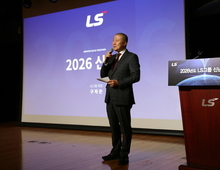 3
3
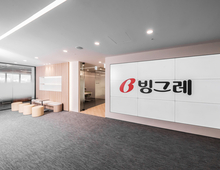 4
4
 5
5
 6
6
